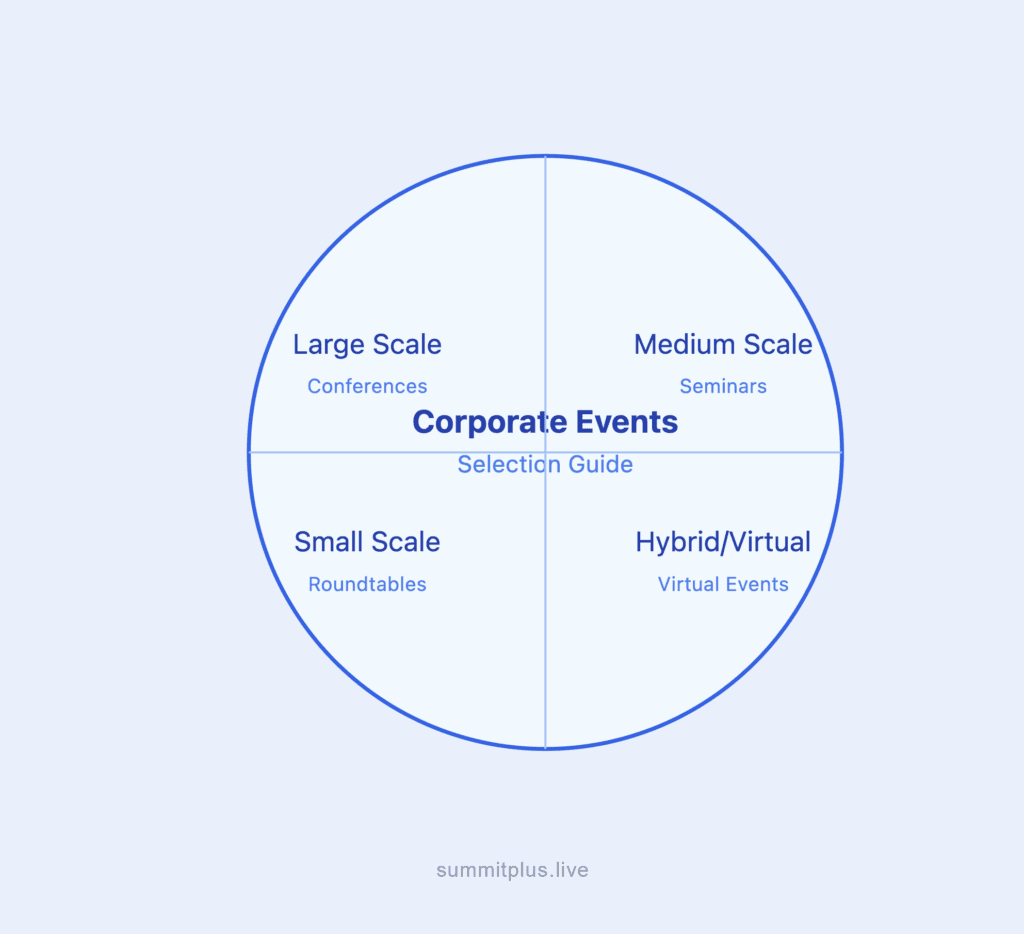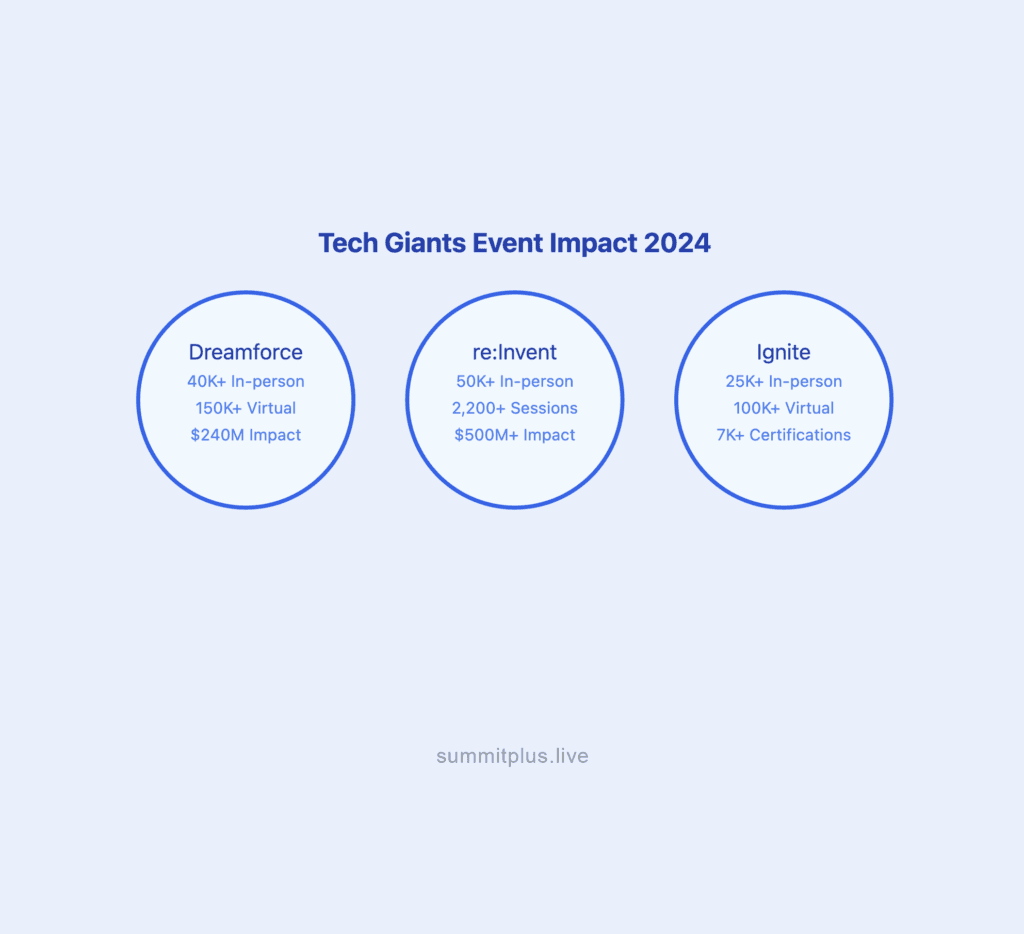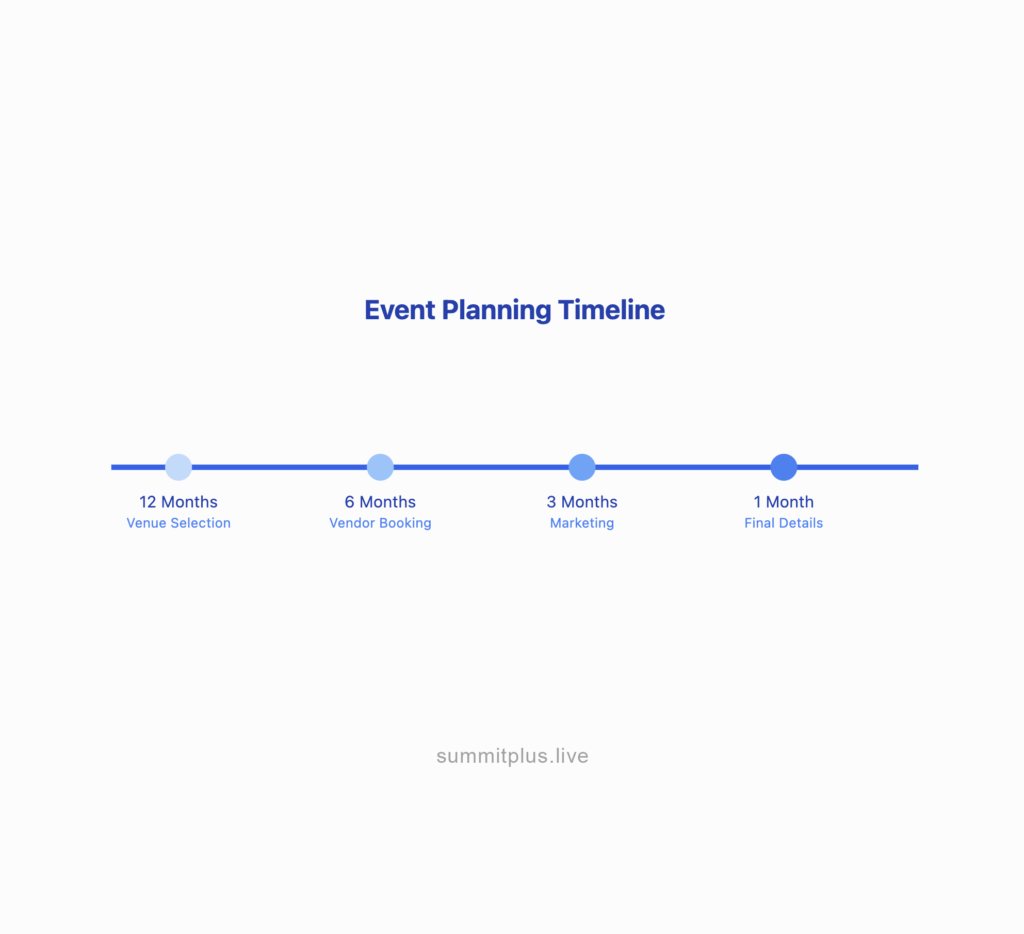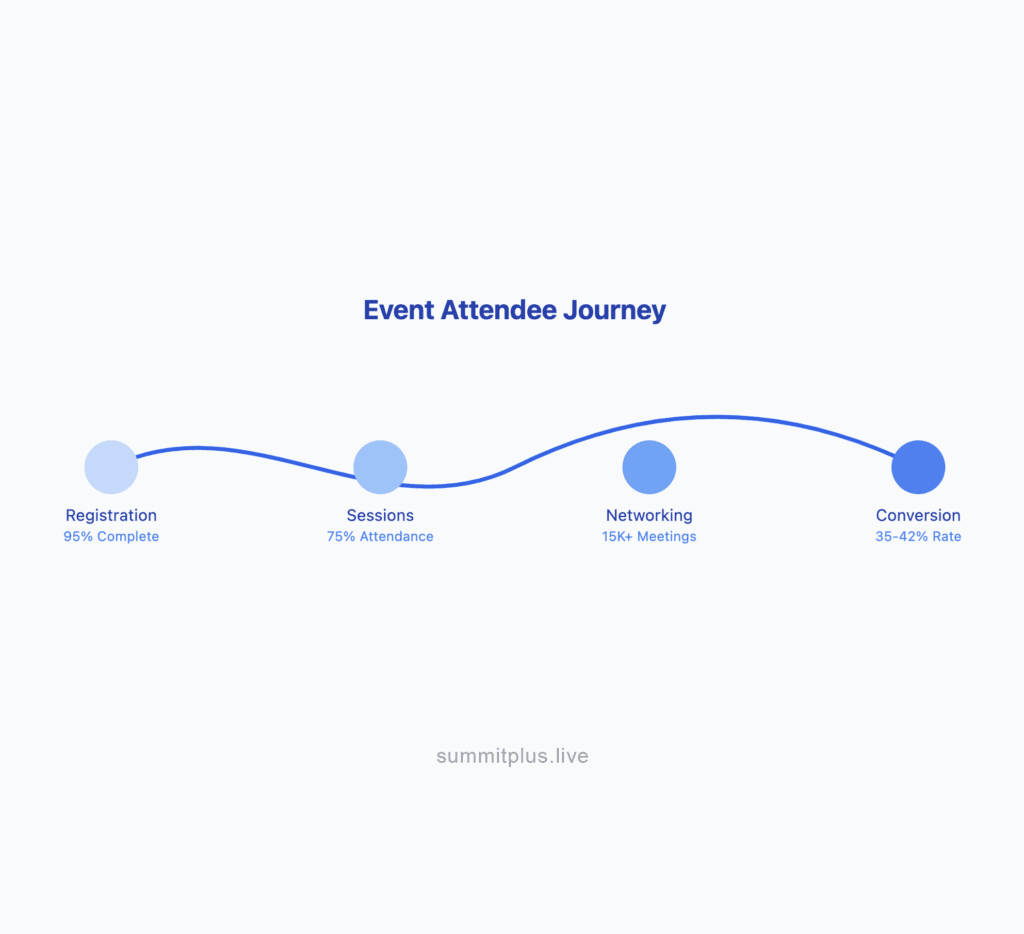Table of Contents
INTRODUCTION
The landscape of types of corporate events has evolved dramatically in recent years, transforming from traditional gatherings into strategic business tools. Companies like Salesforce, with their annual Dreamforce conference, demonstrate how well-executed corporate events can build brand authority and drive business growth. From Apple’s product launches that generate global buzz to Zoom’s intimate customer roundtables, modern organizations are leveraging various event formats to achieve specific business objectives.
Major corporate events represent significant investments that can reshape industry landscapes. Consider how Web Summit grew from a small Dublin gathering to one of tech’s most influential types of corporate events, attracting over 70,000 attendees annually. These large-format events require extensive planning, substantial resources, and meticulous attention to detail, but when executed well, they can deliver unprecedented ROI and market impact.

Conferences
Corporate conferences serve as powerful platforms for knowledge sharing and networking. Take Microsoft Ignite, which successfully combines keynote presentations, technical workshops, and networking sessions. These events typically span multiple days and can accommodate thousands of attendees, requiring careful orchestration of concurrent sessions and diverse content tracks.
Trade Shows and Expositions
Trade shows remain among the most effective types of corporate events for direct business development. The Consumer Electronics Show (CES) exemplifies this format’s potential, with over 4,500 exhibiting companies reaching 170,000+ attendees. Success in this format relies heavily on booth placement, design, and interactive elements that draw attendee attention.

Conventions
Industry conventions blend educational content with networking opportunities and entertainment. Comic-Con International demonstrates how conventions can evolve beyond traditional corporate formats, creating immersive experiences that engage attendees on multiple levels while maintaining professional value.
MEDIUM-SIZED CORPORATE GATHERINGS
Mid-sized events offer an optimal balance between reach and intimacy. Companies like HubSpot host regional user groups and partner days, demonstrating how these types of corporate events can foster deeper connections while maintaining manageable logistics and costs.
Seminars
Professional seminars provide focused learning environments for specific topics or skills. Goldman Sachs’ investment seminars and Google’s developer workshops showcase how this format can effectively deliver specialized knowledge while building valuable relationships with key stakeholders.

Workshops
Interactive workshops represent one of the most engaging types of corporate events for skill development. Consider how Adobe’s Creative Workshops combine hands-on learning with expert guidance, allowing participants to master complex tools in a collaborative environment. Companies like McKinsey also leverage this format for leadership development programs.
Corporate Retreats
Strategic retreats offer unique opportunities for team building and deep-dive planning. Patagonia’s environmental leadership retreats and Google’s innovation camps demonstrate how companies can combine professional development with meaningful experiences. These events typically blend structured sessions with informal networking opportunities.
Intimate corporate events create spaces for focused discussion and decision-making. Goldman Sachs’ executive roundtables and Amazon’s leadership meetings showcase how these formats can drive strategic outcomes through concentrated interaction among key stakeholders.

Executive Roundtables
High-level roundtable discussions remain among the most impactful types of corporate events for senior leadership engagement. The World Economic Forum’s regional roundtables demonstrate how these intimate gatherings can shape industry directions and foster strategic partnerships.
Training Sessions
Focused training events deliver specific skills and knowledge transfer. Microsoft’s MVP training sessions and Salesforce’s certification boot camps show how structured learning environments can effectively upskill participants while building professional communities.

HYBRID AND VIRTUAL EVENTS
The evolution of digital platforms has transformed how organizations approach types of corporate events. Cisco’s WebexOne and VMware’s virtual conferences demonstrate how hybrid formats can expand reach while maintaining engagement through innovative digital tools.
SPECIALIZED CORPORATE EVENTS
Purpose-driven events serve specific business objectives. Apple’s product launches and Tesla’s shareholder meetings show how specialized formats can create maximum impact for particular goals, whether it’s product introduction or stakeholder communication.

FUTURE TRENDS
The future of corporate events lies at the intersection of technology, sustainability, and human connection. Meta’s metaverse events and IBM’s AI-powered conferences preview how emerging technologies will reshape event experiences while maintaining focus on business outcomes.
CONCLUSION & BEST PRACTICES
Successful corporate events require strategic planning, flawless execution, and continuous adaptation. Drawing from examples like Dreamforce’s consistent growth and TED’s format evolution, organizations can craft events that deliver lasting value while building stronger professional communities. learn more https://summitplus.live/
Pro Tip Box: Create an event contingency plan that covers:
- Weather issues
- Speaker cancellations
- Technical failures
- Security concerns
- Health and safety protocols
What’s the ideal lead time for planning different types of corporate events?
Large conferences: 8-12 months
Mid-sized events: 4-6 months
Small corporate gatherings: 2-3 months
Virtual events: 2-4 months Pro Tip: Add 25% buffer time for unexpected challenges.
How much should I budget per person for different event types?
Large conferences: $500-1,000
Executive retreats: $1,000-2,500
Training workshops: $200-500
Virtual events: $100-250 Note: These figures include venue, catering, and basic tech setup.
What are the most common reasons corporate events fail?
Unclear objectives (32% of failures)
Poor audience engagement (28%)
Technical issues (24%)
Inadequate promotion (16%) Solution: Create a risk management plan addressing each area.
How do you measure corporate event success?
Attendee satisfaction scores (aim for >85%)
Lead generation numbers
Social media engagement
Revenue generated
Cost per acquisition Track these metrics against pre-set benchmarks.
Virtual vs. Hybrid vs. In-Person: Which format delivers the best ROI?
In-person: 25-34% ROI
Hybrid: 20-30% ROI
Virtual: 15-25% ROI However, virtual events typically cost 75% less to produce.
What technology is essential for modern corporate events?
Event management platform
Registration system
Mobile event app
Live streaming capability
Engagement tools Budget: 15-20% of total event cost for technology.
How can I ensure high attendance rates?
Early bird discounts (increase registration by 27%)
Regular communication (at least 1 touch point every 2 weeks)
Personalized agendas
High-value speakers
Interactive content promises

Leave a Reply